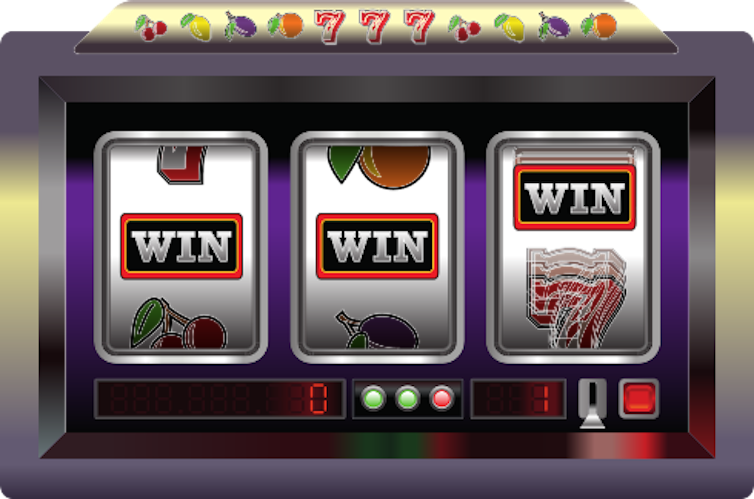Most community bids to block pokies fail – the law is stacked against them too
- Written by Dr Mette Hotker, Lecturer in Social Planning, RMIT University
Most Australians know you never end up winning on the pokies. What Australians might not know is that the odds of winning a case against a poker-machine proposal in their local neighbourhood are very poor too. My recent study shows the Victorian Commission for Gambling and Liquor Regulation (VCGLR) approved almost 90% of poker-machine licence applications that came before it.
Although the commission must consider the views of the local council when making decisions, council opposition rarely stops a proposal. These cases are hard to fight and win. They are very expensive and demanding. Should a Victorian council brave the fight, the odds of losing are as high as 80%.
Read more: Pokies, sport and racing harm 41% of monthly gamblers: survey
Not all councils have the resources or appetite for such a battle. This is a problem for councils and communities. Their frustration about the lack of local influence on regulatory decision-making adds to their concerns about gambling harm in their community.
 Even when councils oppose an application for a poker-machine venue, the applicant wins up to 80% of the time.
Peter Hermes Furian/Shutterstock
Even when councils oppose an application for a poker-machine venue, the applicant wins up to 80% of the time.
Peter Hermes Furian/Shutterstock
There’s a reason councils rarely win
The question is why are these cases so hard to win? Especially when the Victorian regulatory system – under the Gambling Regulation Act 2003 and the Planning and Environment Act 1987 – specifically acknowledges the importance of local influence on the distribution of poker machines.
Regulatory and quasi-court procedures are notoriously complex and resource-demanding; this includes poker-machine regulation. However, less attention and scrutiny have been given to the assumptions and principles underpinning gambling policy and procedures. This is the source of councils’ difficulty in winning a case against poker machines.
The VCGLR approves poker machine licences if it considers the “net economic and social impact of approval will not be detrimental to the well-being of the community”. This “no net detriment test” involves a guesstimate of potential costs and benefits in relation to a proposal’s overall community impact.
The premise is that harm can be absorbed into benefits to serve the community as a whole – the majority of people. It’s a utilitarian approach to gambling policy that implies social harm can be costed. This means the nation’s joy of gambling can outweigh vulnerable people’s misery.
Read more: How flashing lights and catchy tunes make gamblers take more risks
 The design of poker machines makes playing the pokies a highly addictive form of gambling.
Mick Tsikas/AAP
The design of poker machines makes playing the pokies a highly addictive form of gambling.
Mick Tsikas/AAP
Essentially, the VCGLR’s task is (indirectly) to estimate “how many happy gamblers does it take to make up for suicide, bankruptcy, domestic violence?”. All these social harms have been associated with gambling.
This is crudely put, but it’s the social contract we enter into when accepting a cost-benefit approach to gambling policy.
Read more: Areas with more poker machines have higher rates of domestic violence
Apart from the ethical dilemma involved here, the cost-benefit approach to assessing poker-machine applications is highly problematic for local councils.
Social harm is notoriously difficult to cost. That makes it difficult to argue and easier to dismiss. The concerns that are most important to local communities cannot effectively be tabled on the regulatory agenda.
Read more: New research shows pokie operators are not nearly as charitable as they claim
The utilitarian approach is harmful
Victoria’s regulatory system keeps the public debate focused on utility. The ethical basis of poker machines is neither addressed nor debated.
Getting better at costing gambling harm is not going to solve this problem for local councils. An assessment of utility implies the most vulnerable or disadvantaged members of a community must accept the harm burden of gambling so others can have more in the form the freedom to gamble and redistributed benefits - for example through state taxes derived from foker machine gambling.
Most of these poker machine taxes are drawn from these lower socio-economic areas. The inferior social and economic infrastructure of the disadvantaged areas where pokies tend to be concentrated adds to the injustice.
Read more: Who wins from 'Big Gambling' in Australia?
The broad distribution of poker machines and associated high levels of harm are evidence of the failure of this cost-benefit approach. Regulatory decision-making isn’t properly assessing the real cost and harm poker machines cause.
The current approach fails to give enough weight to local concerns and meaningful participation and representation. As a result, the system falls short of meeting public expectations of fair and just regulation.
If councils and communities are to get a fairer go, a different policy approach is needed. It needs to be able to better consider the impacts of poker machines on local communities and social justice more generally. It’s time to rethink the use of cost-benefit analysis as the basis for gambling policy - and social policy more broadly.
Gaming regulation across Australia currently protects a very fragile justification for poker machines as legitimate social and economic infrastructure. It serves the gambling industry and state interests better than the well-being of local communities.
Read more: Vital Signs: why governments get addicted to smoking, gambling and other vices
Authors: Dr Mette Hotker, Lecturer in Social Planning, RMIT University





